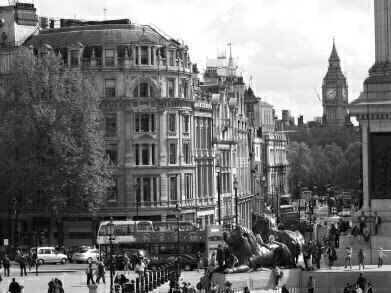Air Clean Up
Is Air Pollution the Next Big Public Health Crisis?
May 22 2017
Last week, Theresa May designated air pollution as the fourth biggest risk to public health in the UK, behind cancer, obesity and heart disease. But does such a distinction go far enough?
Many experts believe that air pollution warrants increased scrutiny from May and her party, with previous attempts by the Tory government to clean up the country’s airways branded as “woefully inadequate” by some commentators.
An escalating issue
For years now, the UK has fallen foul of EU legislation on air quality. May’s government have broken the law on several occasions and have twice lost court battles with environmental law group ClientEarth. Despite this, nearly half of all British counties don’t meet legal thresholds and parts of London are considered the most polluted in all of Europe.
Indeed, it’s thought that air pollution claims the lives of as many as 40,000 Britons each year and collectively, we are losing 340,000 years of our life due to its harmful effects per annum. If that doesn’t constitute the next big public health crisis, what on Earth does?
Notwithstanding these terrible statistics, the Conservative government have repeatedly shirked their responsibility to tackle the problem head-on, instead drafting inadequate proposals to curb emissions from passenger cars, which constitute the lion’s share of the problem.
Traffic-related pollution the major culprit
In 2013, the Industrial Emissions Directive (IED) was introduced in the UK to regulate emissions from power plants and other industrial facilities. Whilst not perfect, the directive has done much to limit harmful pollution from these sources.
Traffic-related pollution, on the other hand, has deteriorated over the years. The proliferation of diesel vehicles on Britain’s roads contribute a significant amount of nitrogen oxides (NOx) and particulate matter 2.5 (PM2.5) into our atmosphere, seriously jeopardising the health of the country’s residents.
The government has proposed introducing ultra-low emissions zones (ULEZs) in five cities across the nation – Birmingham, Leeds, London, Nottingham and Southampton – whereby taxis, buses and lorries will be subject to a charge if they contain older, more polluting engines.
However, critics say that the scheme targets too few cities and too few vehicles. With privately owned passenger cars exempt from the law, one third of all PM2.5 emissions in London will remain unaddressed.
Greater action needed
As a result of these inadequate plans, the government have been sued twice by ClientEarth, losing both times. They were instructed to come up with a new and improved plan to tackle the problem by May, but appealed to have the publication of the proposals delayed until after the General Election on June 8th.
That appeal was rejected by the High Court and earlier this month, the government finally released their latest draft to combat air pollution. Once again, the plans were criticised for their absence of clarity and scope, with many environmentalists bemoaning their repeated lack of action on the issue.
Instead, the government seem more interested in plans to build a third runway at Heathrow Airport and pursue fracking in the north of England, both policies which are expected to exacerbate current pollution problems. If May and her party continue with the same approach, there is little doubt that air pollution will become the next public health crisis in the UK.
Events
Apr 22 2024 Hannover, Germany
Apr 23 2024 Kuala Lumpur, Malaysia
Apr 24 2024 Sao Paulo, Brasil
May 05 2024 Seville, Spain
May 13 2024 Munich, Germany














